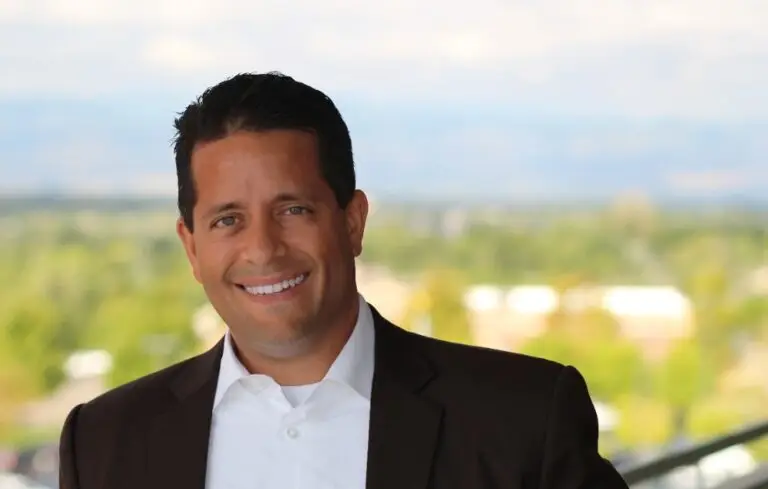Most CEOs put so much weight on their own ability to control things. As such, it goes to reason that when something seemingly negative happens, we think it is our fault. As the CEO of Bay Dynamics, I can assign responsibility to myself on everything and carry it all on my own shoulders. After all, part of leadership is to hold yourself accountable for the failures and give everyone credit for the success.
But what happens when you train your mind to take responsibility for everything, is that you develop a tendency to think, “I could have controlled that too.” The trap, and what most people don’t realize about CEOs, is that they feel the weight of the world and believe that everything that happens at their company relies entirely on their actions. As much as we prize the behavior of taking responsibility, if you are going to effectively meet the demands of your job, you need to free yourself from this thinking.
“Out of suffering have emerged the strongest souls, the most massive characters are seared with scars.” – Khalil Gibran
A lot of CEOs don’t talk about these things. But when I commiserate with other members of a CEO group I belong to, I learn that we all don’t get enough sleep, we all have similar issues, and we all heap burdens on ourselves. Most CEOs are very perseverant, so we do this and we can still survive and often thrive, obstacle after obstacle. As a CEO there isn’t time to dwell on things, so you are constantly forced to move on to the next meeting, event, contract, crisis, etc. It’s a little like football where play after play you give 110% effort and you crush it. Along the way though, you may take a few hits to the head.
Be careful what you wish for…
As a CEO, you are driven in a way that is both a blessing and a curse. It takes a tremendous toll, but without it you won’t bring your “A” game and function at the highest level.
A lot of us can’t help it. We are built to break through things and obstacles, absorbing the pain along the way. But you CAN get better at managing the collateral damage inherent in this job. When you speak with a group of CEOs you get to hear their perspective and learn that they are dealing with many of the same challenges. Ben Horowitz has a great quote that resonates, “As a startup CEO, I slept like a baby… I woke up every two hours and cried.”
This is what we don’t all run around talking about. We act stoic, but when unwinding with a friend who has been through it, you recognize that you both share the same sense of responsibility. One of my friends who had been an executive at a large company prior to becoming the CEO of a small organization said it best – “It’s like a parent watching a baby.” All small company CEOs share this anguish – you have no choice, as the baby can die if you’re not attending to it. Even when you get your company to the next level, the burden is still there, the challenges just change. So how do you manage the demands of the job, and your personal tendency to absorb responsibility and pain, so that you can achieve the best possible outcome for your company and yourself?
Surround yourself with peers and advisors who have walked in your shoes. Never forget that as lonely as your job can be, you are not alone. You share this trait with nearly every other CEO. So, select your board, investors, and other advisors carefully. You want people who can offer not only financial investment but operational experience, leadership, and even emotional advice. They can be a great source of solace and support. This is especially true of other CEOs who have built businesses themselves, because they will be able to provide advice based on relevant experience.
Practice controlled catharsis. There may be times when you find yourself in such a bad situation that you feel you must go through the anguish phase. When that happens, apply the mindset that you are only doing this for a short period of time to purge it out of your system. Allow yourself a day, and then don’t look back. When the time’s up, get up on your feet and get back to fighting.
Resist trying to do it all alone when things are challenging. Include your team and rely on the power of the collective IQ and EQ of your company to solve the hard problems you’re facing. Keep your team focused forward and start any problem-solving initiative by asking these questions:
What is possible?
What am I not doing?
What might we try?
What alternatives do we have?
Don’t hang your head down. You are there to help people overcome obstacles not bring them down. This is part of why it is sometimes lonely at the top and why you need other CEOs you can confide in. No matter what, drive and motivate the troops but remember it’s ok to show some vulnerability and ask for their help.
Remember that you are a “gladiator”. Most people are watching and sometimes judging from the sidelines. You’re in the middle of the arena fighting at the highest level. Of course you feel the terror, which can incidentally make you sharper. You dare to be afraid – that is not the same as being a coward. Cowards go out of their way to avoid fear.
Channel your energy effectively. When confronting a problem or failure it can be tempting to expend your energy looking backward, trying to figure out why it happened. Resist! Energy is finite. It’s much more effective to redirect your energy, time and effort toward figuring out the next step that is going to help you bounce back and accomplish the so-called impossible. We all know this on an intellectual level, but it is hard to do when you are in the middle of a storm. Stay focused!
Learn to compartmentalize – unplug. You need to constantly anchor yourself by remembering that at the end of the day, a lot of this is mindset. You have to find scheduled times in the day to step away. Even US presidents have been known to disconnect for dinner with their families or in the case of FDR, a daily cocktail hour.
Don’t toil over failures. Have faith in unexpected outcomes. Many times, what you label as an undesirable event at the time, will become a huge positive when you recalculate later. This could be as simple as a deal that didn’t close on time, but saved your bottom line in the next quarter. It could be a direction you took as a company that wasn’t immediately beneficial, but paid off months, or even years, later. Don’t waste your time toiling over things because you never know what turn they will take. Take your lumps, acknowledge and learn from your failures, but keep driving forward… as these events might turn out to be just what you needed.
Closely monitor your strength to ensure it doesn’t cast a shadow on your business
As easy as it is to ignore your own mental health and well-being in this role, don’t do it! As a CEO, one of the most important things you can do is to make sure that your strength doesn’t become a weakness. Your biggest attribute is the fact that you are able to take on so much responsibility and work, and pressure and still deliver. But every strength has a shadow that you need to consciously control. Avoid the classic CEO mistake of taking on too much of the burden. Follow the advice above and collaborate with your team to win. You don’t want to be the CEO who learned too late that their strength was their downfall.
Read more: “Nobody Does It Better Than Me” Is The Wrong Approach






